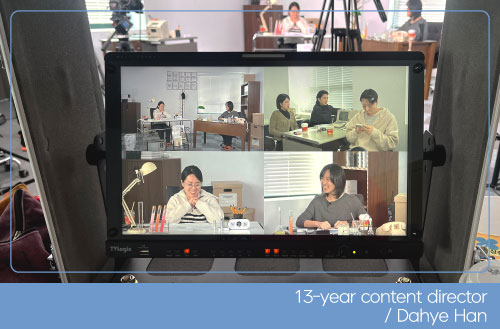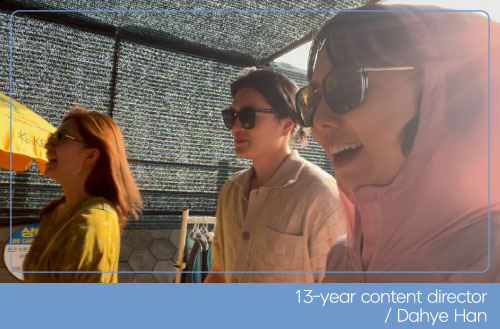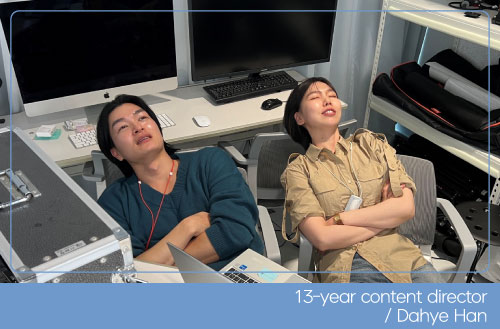

-
-
- 메일 공유
-
https://stories.amorepacific.com/en/amorepacific-does-longevity-really-lead-to-mastery
Does Longevity Really Lead to Mastery?
Forties: How to Work Longer and More Beautifully #1

Columnist
Da-hye Han Makeup Professionals Team

#INTRO
I turned forty this year. Having worked as a content planner for quite some time, I finally have the space to slowly reflect on my career. I think I did well to persevere this long. Through the lens of my forty-year-old self, who wants to continue working authentically, I look back on the time I've steadily built in this field. Through five columns, I want to share the profound and new beauty I've discovered along this journey.
When I first started this work, someone told me, "Eventually, if you do something long enough, you'll get good at it." Though I felt immediate relief hearing this, I couldn't fully believe it. In those days, I wavered daily between my eagerness to improve quickly and my anxiety about not being good enough. I spent many nights lying awake until dawn, blaming myself. I desperately wanted to become as skilled as others.
When I first went to the set, I stood all day like a tripod. Though I felt I should be doing something, I lacked the confidence to step forward, watching cautiously from the corner like a prop nobody needed. I was so embarrassed just standing there that I wanted to be invisible. While senior staff confidently gave directions and other crew members moved according to their roles, I kept shrinking. I held back tears on set, silently asking myself, "What am I doing here?"
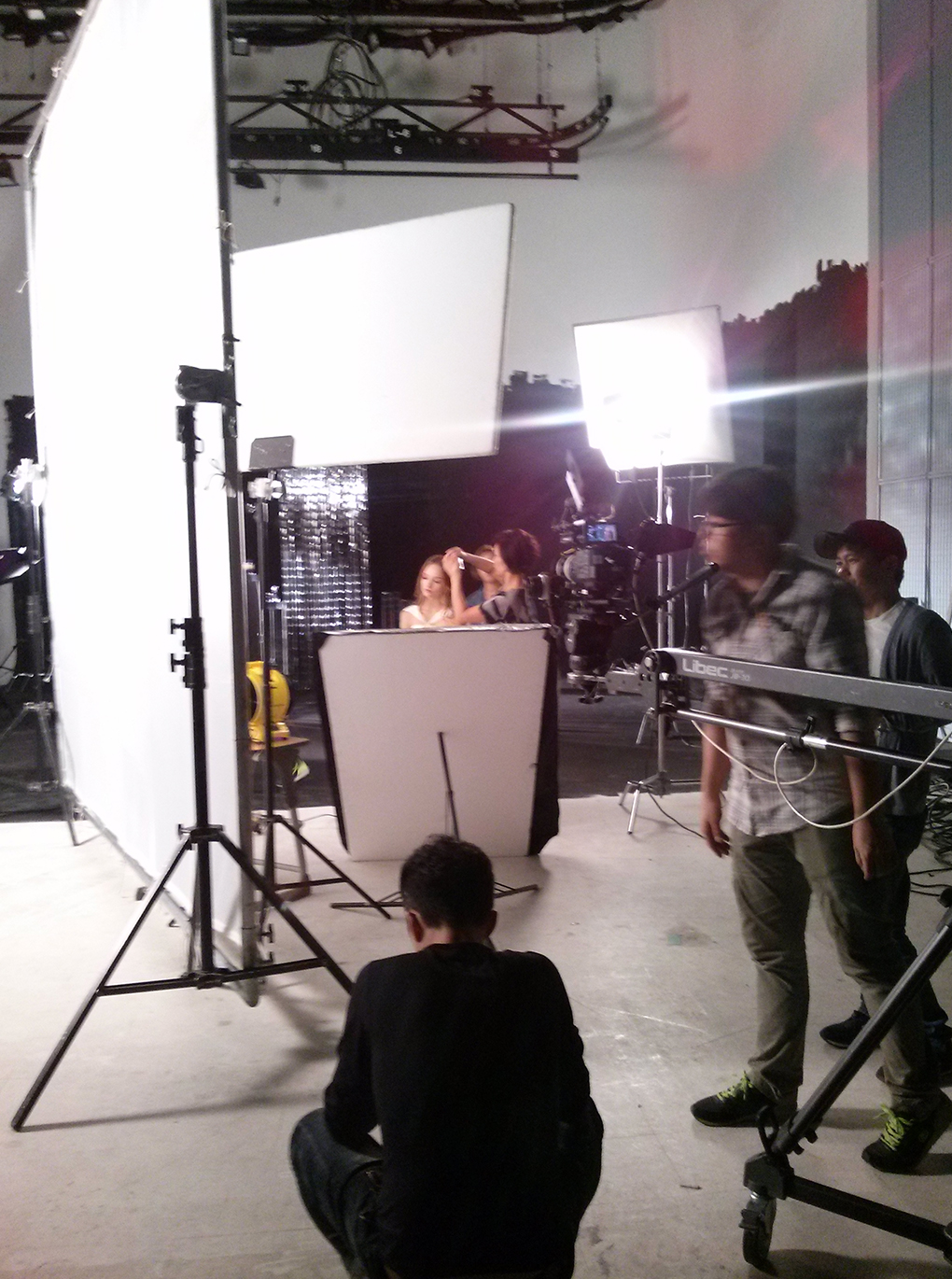
From the perspective of those days when I was merely an observer during 24-hour shoots
Once, I was working as an assistant director on a shoot that continued late into the night. I went to the convenience store to buy snacks for the staff, but when I laid them out, a senior colleague said, "Why didn't you buy Bacchus? It's essential for night shoots!" My face instantly burned, and I wanted to disappear into thin air. That minor mistake felt so enormous that I vividly remember going outside the studio and leaning against the wall, trying to breathe quietly. After comforting myself for a while and returning to the set, I found a senior colleague quietly offering me a snack, as if understanding my feelings. Thanks to that small, wordless comfort, I gathered my courage again. Even now, I sometimes recall that moment and feel a twinge in my heart, remembering why I felt so ashamed and small.
But as those experiences accumulated, things gradually changed. I realized that the power of time spent doesn't necessarily make you better; instead, it helps you slowly accept and love yourself. I understood that there's sincerity in every subtle atmosphere on set. A joke shared by seniors with colleagues during breaks, a small smile that eases tension, and encouraging glances exchanged turned out to be the greatest strengths of this work.
At some point, I discovered small changes within myself. Someone who found making decisions difficult and worried over the most minor matters was confidently offering opinions, saying, "What if we try it this way?" I became able to handle situations flexibly without panicking when plans fell apart. At first, these were minimal choices. I chose comfortable clothes instead of decorative ones and moved heavy equipment myself. These small moments unknowingly awakened the potential within me.

Days of making decisions with authority on set
Unexpected things always happen on shooting locations. It's routine to be flustered when equipment is missing, delays occur, or the desired angle won't materialize. Once, just as everything was perfectly prepared and recording was about to begin, loud construction work started near the studio. When everyone was panicking, I calmly and quickly made the best decision for the situation. The staff immediately acted on my choices, and we successfully completed that day's shoot. I sometimes think, "I've become someone who doesn't waver anymore."
A director's job involves making countless big and small decisions at every turn. I've often ruined things by trying to make perfect choices. But now I understand: Someone who has worked long in this field doesn't do everything perfectly, but can see through to the essence and focus only on what's truly necessary. The eye that discerns what's really important is ultimately the mark that time has left on me.
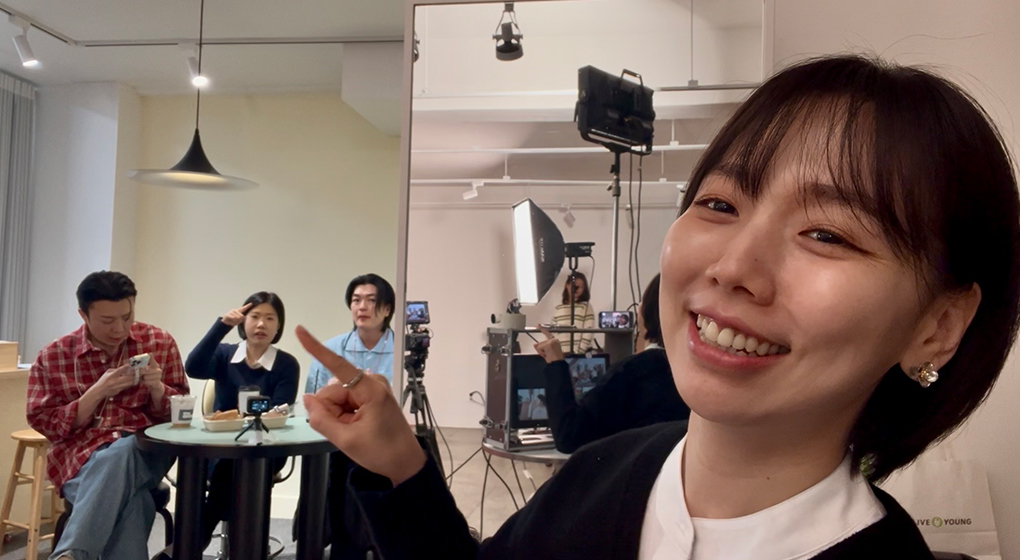
A set filled with laughter produces better results than one filled with tension.
The most valuable asset I gained from my years in the industry was developing a distinct sense of ‘taste.’ Rather than following others’ standards, I cultivated a core sensibility by exploring and building my aesthetic judgment. From the fantastical imagery of photographer Tim Walker to the dynamic photographs of Nobuyoshi Araki recommended by our head photographer, from cutting-edge brand campaign films to the cinema of Alain Guiraudie and Wang Bing as interpreted by critic Seong-il Jeong—these diverse influences have enriched my professional perspective.
When striving for excellence but facing challenges, don’t isolate yourself. I found solace and guidance during particularly difficult moments in professional memoirs and interviews. I turned to works like Jisoo Kim’s “The Philosophers of Their Own Lives” and “Self-respect Persons,” along with Director Chanwook Park’s “Montage.” Recently, I’ve been reading Japanese cartoonist Takashi Yanase’s “I Was Still Unsure at Forty.” Yanase created “Anpanman” at fifty, but despite initial poor reception, he persevered and finally achieved widespread recognition through animation at seventy. He must have faced so much uncertainty and frustration during those long years.
Career longevity isn’t about quick success—finding your own pace and direction amid uncertainty. While I cannot guarantee that time in a profession automatically makes you better, it certainly helps you discover your authentic approach to work. Rather than striving for unwavering certainty, I now embrace the natural fluctuations of the process and commit to working with authenticity, even during challenging periods.
-
Like
1 -
Recommend
0 -
Thumbs up
0 -
Supporting
0 -
Want follow-up article
0



